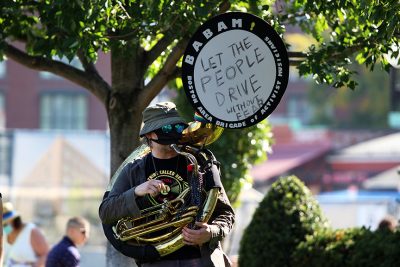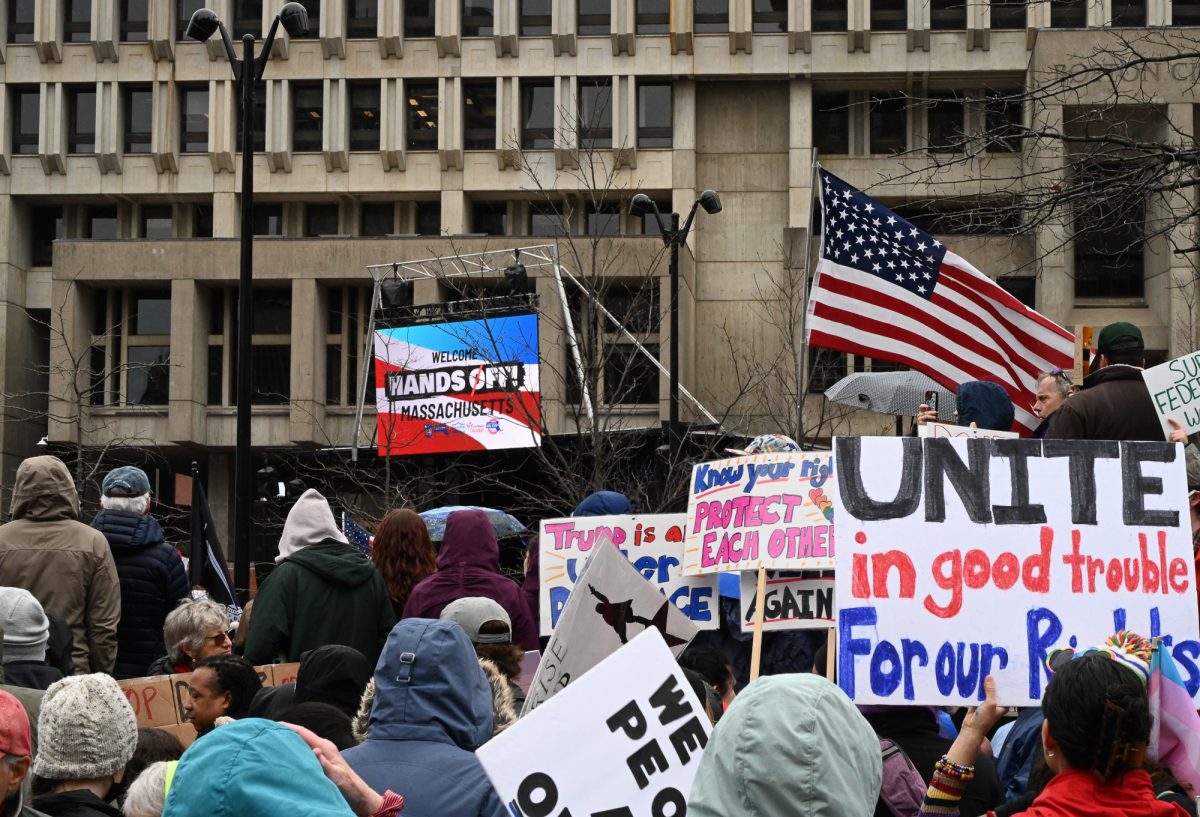Billie Holiday first recorded “Strange Fruit” in 1939 — adopting a 1937 poem by The Bronx teacher and civil rights activist Abel Meeropol. She was consequently denied a cabaret performer’s license and the song made her the target of the Federal Bureau of Narcotics, which ultimately led to her death in 1959.

But in 1999, Time Magazine declared it the song of the century.
“If you look at the history of music dating back for decades and decades, artists and art have always had a very powerful effect on enacting change, bringing to light certain subjects,” said Susan Cattaneo, associate professor of songwriting at Berklee College of Music.
Cattaneo said prior to the 1960s, the industry fiercely pushed back against social issues in music, fueling the hostility Holiday faced.
“There were acceptable things that were allowed to be sung about and things that were not acceptable to sing about,” she said.
Artists draw from their own experiences to fight for social issues, she said, while music played at protests themselves have a different, yet nonetheless important, role.
The Boston Area Brigade of Activist Musicians is an organization composed of protest and activist bands around Boston. Kirk Israel, a regular performer and tuba player with BABAM, said the group is usually contacted by protest organizers.
“We’re there to add this musical energy to events that are going on,” Israel said.
Drawing inspiration from New Orleans street bands, Israel said the musicians work with the protesters to support and reverberate their message.
“A bunch of people, plus a band, has more power than just a bunch of people,” Israel said. “We do what’s called ‘chant backing,’ which means we’ll mold the baseline and the drums and some ornamentation from other instruments to back up the voice of the people.”
Israel said one of his personal triumphs with BABAM was in 2017, when around four bands came together during a Black Lives Matter protest in Boston, countering an alt-right protest at the Boston Common.
An estimated 40,000 people marched in a counter-protest from Roxbury to the Common, dwarfing a “Free Speech Rally” featuring prominent conservative figures.
“Just the numbers and knowing that there’s so many people who really do understand the amount of racial inequality we have and that we were so able to swamp the alt-righters,” Israel said. “That was definitely one of the biggest and best memories.”
Outside individual protests, HONK! is an annual festival of activist street bands that usually plays out over Indigenous Peoples’ Day weekend, said Ken Field, a member of the festival’s organizing committee.
Started in Boston in 2006, HONK! has since spawned 22 similar festivals around the world, Field said.
From the outside it’s similar to Mardi Gras, he said, with its “boisterous music and outrageous costumes.” Internally, the activist and community-based bands from all parts of the globe join and bring with them the causes they are passionately advocating for.
In the roughly 14 years he’s been in HONK!’s committee, Field said the festival has expanded rapidly. Originally 12 bands, it now boasts nearly 35 with some 600 musicians.
Field, who also performs with the Second Line Social Aid and Pleasure Society Brass Band, said protest art and music play a “crucial” role.
“Art and music express emotion,” Field said, “and protesting without emotion is not powerful.”
Field said his experience in a performance outside Boston’s U.S. Immigration and Customs Enforcement House of Corrections is one of his most memorable.
He said he and others believed the detainees were being held “for no good reason” and without the chance to receive representation.
“Many hundreds of the musicians from all the bands went down there, we had buses taking people down and we played outside the detention center,” Field said, “basically just to let the people who were being held know that we knew they were there.”
Robert Lagueux, associate vice president of academic affairs at Berklee, said music has always served as a way to subvert injustice and push for protest — a tradition that remains firm in the modern day.
Such would be Janelle Monáe’s six-and-half minute song “Hell You Talmbout,” he said, in which she lists the names of 18 Black people killed by police and in other acts of hate.
Monáe mentions Walter Scott, Eric Garner and Aiyana Jones, among others, repeating each four times.
“Say her name, say her name, say her name,” Monae sings of Sharonda Singleton, one of the victims of the 2015 shooting at the Emanuel African Methodist Episcopal Church in Charleston, South Carolina.
Lagueux added that while not “overtly menacing” like Rage Against the Machine’s “Killing In The Name,” the repetition of the names in Monáe’s 2015 song comes across with the same power.
“It’s heartbreaking to hear the number over and over again,” Lagueux said, “and the constant admonition to not forget their names.”






















































































































Ken Field • Apr 8, 2021 at 12:30 pm
Thanks for this article, Jesús.